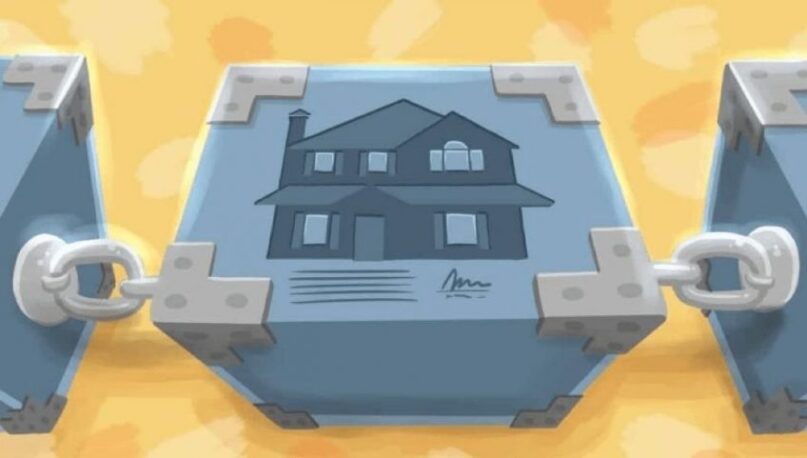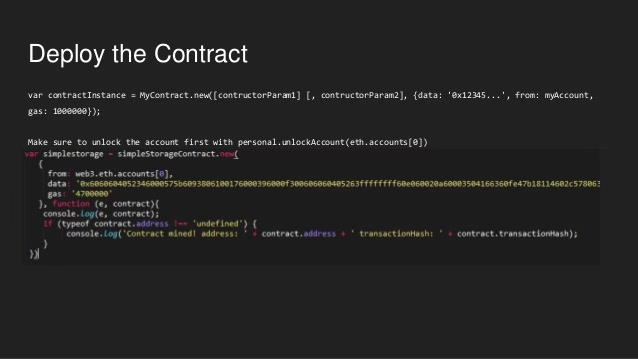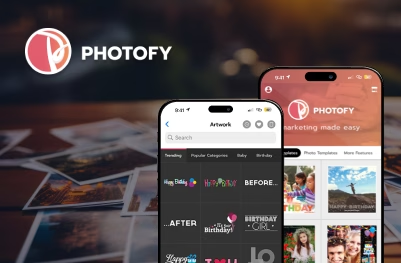- Developers
- Developer Blog
- Blockchain Development
- How To Build Real Estate Blockchain Projects

profile

By Aran Davies
Verified Expert
9 years of experience
Aran Davies is a full-stack software development engineer and tech writer with experience in Web and Mobile technologies. He is a tech nomad and has seen it all.
Interested in how to implement blockchain in real estate and what is the future of blockchain in real estate? Or are you looking for a software development company to help you set up a blockchain project?
In this article, we will answer the most popular questions about blockchain in real estate and discuss two approaches to building real estate blockchain projects. The first approach implies using Lisk to develop a blockchain real estate app. The second approach is to utilize the Ethereum virtual machine.
In this article
- Methods To Build Real Estate Blockchain Projects
- The 1st Approach: How To Develop a Blockchain Real Estate Platform With Lisk
- Real Estate Blockchain-Based Platform development 2nd approach: Ethereum DApp
- Frequently Asked Questions on Blockchain in Real Estate
What is the future of blockchain in real estate?
Blockchain could revolutionize the real estate industry by speeding up transactions, payments, and home inspections. Blockchain can be applied in real estate through smart contracts and tokenization.
Before delving deep into the topic, let’s see some statistics on the real estate industry.
- The global real estate market value is expected to reach $654.40 trillion in 2025;
- The United States real estate market value is projected to reach $119.80 trillion in 2025;
- The United States residential real estate transactions market value is expected to reach $2.98 trillion in 2025.
Developing blockchain-based solutions for the real estate industry requires a deep understanding of blockchain technology. If you don’t have a professional team with relevant expertise, why don’t you submit a request for a complimentary discovery call from DevTeam.Space? One of our tech account managers will contact you shortly to discuss your project details.
Methods To Build Real Estate Blockchain Projects
Here are the best two approaches to ensure a successful blockchain real estate application project.
Approach #1. Use Lisk to develop a blockchain real estate application
You can create a blockchain application on Lisk. It’s a platform to develop blockchain apps.
Think of Lisk as a “Platform-as-a-Service” (PaaS) for developing blockchain apps. PaaS platforms offer the cloud infrastructure, operating systems, middleware, runtime environments, databases, etc. You code your app and bring your data. AWS Elastic Beanstalk is a PaaS platform.

Get a complimentary discovery call and a free ballpark estimate for your project
Trusted by 100x of startups and companies like
Lisk allows you to create blockchain apps using JavaScript, a popular programming language. It offers an open-source JavaScript SDK (Software Development Kit).
You get comprehensive documentation. Lisk offers tutorials. It offers DPoS (Delegated Proof of Stake), a scalable and energy-efficient consensus algorithm.
Approach #2. Use Ethereum to develop a blockchain real estate application
The 2nd approach is to create an Ethereum-powered real-estate platform. You will use the Ethereum virtual machine to create a token for it. You will also create your real estate smart contracts.
An important note: Trade-offs between the approaches mentioned above
There are trade-offs in both approaches. Do you plan to use Lisk? In that case, you must integrate your smart contracts with it separately.
Your team can code in JavaScript, though. That’s an advantage since many programmers know it. Lisk offers scalability.
Do you plan to build your blockchain app on Ethereum? You need to contend with the scalability issues of Ethereum.
However, you don’t need to integrate your smart contracts separately. That makes smart contract development simpler.
Build your team’s development capabilities

Irrespective of the approach you take, your team needs to build the necessary blockchain development skills. Consider the following learning resources:
- Ethereum development tutorial;
- Blockgeeks Solidity guide;
- The DAPPS FOR BEGINNERS website;
- CryptoZombies interactive course;
- Lisk documentation.
The 5th is for the Lisk approach only. Additionally, you need UI/UX design, testing, and project management expertise in your team.
The 1st Approach: How To Develop a Blockchain Real Estate Platform With Lisk
Take the following steps:
1. Buy Lisk
In this approach, you first need to buy the LSK crypto token to operate on the Lisk platform. You need to first set up a Lisk wallet. Subsequently, you can buy Ether and exchange it for LSK.
Be sure to securely store your passphrase, and you should never share it. Check out Buy LSK Token for a detailed set of instructions.
2. Develop your blockchain app
Use the following development and testing tools to create your real estate blockchain app:
Hire expert developers for your next project
1,200 top developers
us since 2016
- Lisk Commander: Start creating your blockchain app using this tool.
- The Lisk CLI tools: Use them for functions like creating accounts.
- Dashboard plugin: You can use it to communicate with your blockchain app.
- SDK testing utilities: Use the Lisk SDK utilities to test your app.
Code, Test, and Deploy Your Smart Contracts: The Common Step in Both Approaches
Whether you are developing using the Lisk platform or an Ethereum DApp, you will need to code, test, and deploy your smart contracts. Review the DeedCoin smart contract GitHub repository to get ideas.
Test your contracts onto the Ropsten Ethereum testnet
While there are different testnets for Ethereum, I will use Ropsten in this guide. You don‘t need real Ether to test here.
For commands, I will refer to a project that Merunas Grincalaitis did and explained in “Ultimate Guide to Convert a Web App To a Decentralized App Dapp.” I will refer to it as the “reference article 1”.
Follow these steps:
- Install MetaMask. It’s a browser extension as well as a crypto wallet. It allows you to connect to the Ethereum blockchain network. Configure MetaMask and set up your secret passphrase. Follow the instructions in the “reference article 1”.
- Change your MetaMask connection from the Ethereum mainnet to the Ropsten testnet.
- Code your smart contracts using the Remix IDE. It‘s a web DApp, therefore, you don‘t need to install any tool for this.
- Get dummy Ether using the MetaMask faucet.
- When you installed the MetaMask extension, it injected Web3.js into your browser, which is an Ethereum JavaScript API. This allows you to communicate with an Ethereum node. Ensure that your MetaMask connection to Ropsten is still open so that Web3.js can work.
- Now, switch to the Remix IDE and deploy your smart contract using the ’Create‘ option. You need to confirm the transaction in MetaMask.
Follow the “reference article 1” for detailed commands.
Deploy your contracts onto the Ethereum mainnet

Now that you have tested your contracts, it‘s time to deploy them onto the Ethereum mainnet. You can consult my earlier guide on this topic, “How to Deploy Smart Contract on Ethereum?”.
You need to do the following:
- Create an Ethereum EOA account, i.e., user account, using the “eth-lightwallet”. Secure your private key.
- Install and configure Ganache, an Ethereum blockchain client.
- Install Web3js, which allows you to communicate with the blockchain. You need to configure it. Refer to “Getting Started as an Ethereum Web Developer” for this. I will refer to this guide for other commands, too; hence, let‘s call it the “reference article 2”.
- Install Truffle and configure it. It’s a deployment tool.
- Open Ganache and run an instance. Update your config.js file. Follow the instructions in “reference article 2” to update the private and public keys in the config.js file.
- Buy real Ether. You need them for smart contract deployment. Plan for the minder fees.
- Use the “truffle deploy” command to deploy your smart contract. Consult the “reference article 2” for detailed commands.
You have now deployed your smart contract onto the Ethereum mainnet. For the Lisk approach only, you need to separately integrate your contracts with your app. Check this YouTube video from the Lisk team for instructions.
Real Estate Blockchain-Based Platform development 2nd approach: Ethereum DApp
The 2nd approach to building a blockchain real estate app involves creating an Ethereum DApp (decentralized app). You will need to create an ERC 20 crypto token, too. ERC 20 is a well-known Ethereum standard. Most crypto wallets can handle ERC 20 tokens.
Read more about it in “What is ERC-20 and what does it mean for Ethereum?”.
Similarities with the 1st approach
You will find many steps from the 1st approach relevant here, too, and you can follow the same instructions. The common steps are the following:
- Create an Ethereum EOA account using “eth-light wallet.”
- Install and configure the testrpc client.
- Install and configure “web3js”.
- Install and configure Truffle, which you will use to test and deploy your smart contracts.
- Update config.js file with your private and public keys.
- Get a dummy Ropsten Ether to deploy your smart contracts onto the Ropsten testnet.
- Buy real Ether to deploy your contracts onto the Ethereum mainnet.
- Code, test, and deploy your smart contracts onto the mainnet. Since you are using the Ethereum network, which is a smart contract platform, you don’t need to integrate your contracts separately as you did for the Lisk approach.
I had earlier described how to build similar DApps in “How to Build Online Marketplace on Blockchain Like OpenBazaar?” and you can consult that guide.
Hire expert developers for your next project
Differences from the 1st approach
However, since you won‘t use the Lisk platform here, your UI/UX team needs to design and develop the UI entirely on their own. There is another crucial difference between the Lisk-based approach and this.
Lisk offers built-in scalability solutions. However, you need to find a scalability solution for Ethereum. We recommend you use the scalability solution offered by Loom Network. You will find it easy to use.
Planning To Invest in Blockchain Real Estate Development?
Blockchain has many benefits in the real estate sector. You can read more on the future of the real estate market on blockchain systems in our article What is the Future of Real Estate on Blockchain?
If you, as a business owner, are planning to use blockchain for real estate professionals like real estate agents or for your own real estate business processes, you are making a viable business decision given the increasing market of blockchain technology for commercial real estate companies.
However, to implement blockchain successfully, you will need skilled blockchain developers with a deep understanding of the emerging technology.
DevTeam.Space can provide you with such vetted expert software developers via its software developers community. Write to us your initial software requirements via this quick form, and one of our account managers will contact you instantly for further assistance.
Frequently Asked Questions on Blockchain in Real Estate
Blockchain promises to revolutionize real estate transactions and processes. It will facilitate legally compliant property transfers between property owners and buyers without the need for a third party. This will help to reduce costs and speed up property transfers and general real estate investment. Moreover, it enables fractional ownership of real estate assets.
It is any software platform that is reliant on blockchain technology to operate. An example is any software platform operating on the Ethereum network. They are decentralized and have no central controlling authority.
You will need to onboard blockchain developers who have all the relevant experience and skills to make your project a success. For leading blockchain experts simply send your project specification to DevTeam.Space.
Related Blockchain Development Articles
Learn more about blockchain development from our expert articles:
- What is the Future of Real Estate on Blockchain?
- Where to Hire Blockchain Developers in 2025
- How to Interview and Hire Blockchain Developers
- What is Blockchain Used for?
- What technologies do blockchain developers use?
- What Are the Best Blockchain Network Hosts in 2025?
- How Blockchain Technology Ensures Network Security
- What are smart contracts in Blockchain Networks?
- How to Choose Smart Contract Platforms?
- What is a Blockchain Smart Contract Audit?
- How to Build a Blockchain Social Media Platform for Bloggers?
- How to Build a Blockchain Music App?
- How to Implement Blockchain in Education Sector?

Alexey Semeney
Founder of DevTeam.Space
Hire Alexey and His Team To Build a Great Product
Alexey is the founder of DevTeam.Space. He is award nominee among TOP 26 mentors of FI's 'Global Startup Mentor Awards'.
Alexey is Expert Startup Review Panel member and advices the oldest angel investment group in Silicon Valley on products investment deals.


